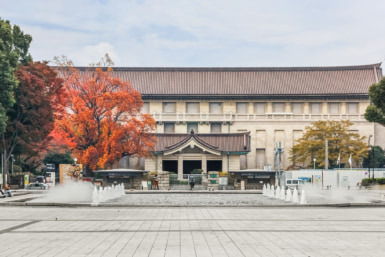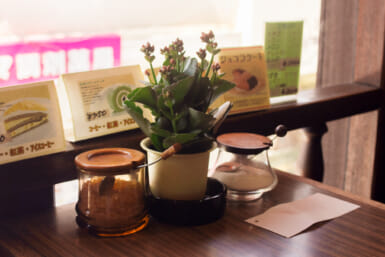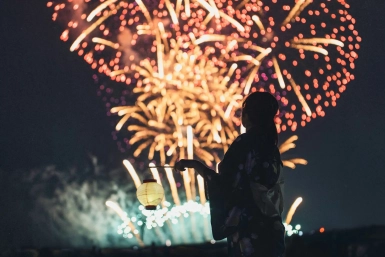US Open winner Naomi Osaka and journalist Shiori Ito, the symbol of Japan’s #MeToo movement, were this year named amongst the world’s most influential people by Time magazine. The annual list has featured more than 20 Japanese-born individuals since it started back in 2004, but how much do you know about those who have been selected? Try our 20-question quiz to test your knowledge (and check the answers below later)!
Take The Quiz
- Shiori Ito, the Face of the #MeToo Movement in Japan, Speaks Out
- Japan’s Secret Shame: BBC Documentary Highlights Shiori Ito’s Rape Allegation
- Why the Whole World Is Tidying Up with Marie Kondo’s New Netflix Series
- Hideo Nakata Interview
- Hayao Miyazaki
- Haruki Murakami: A prize for dreaming
- Understanding Yayoi Kusama Through Her Latest Exhibition
The Answers
Here are the answers to all questions with suggestions for further reading. Read this only after you’ve completed the quiz!
Q1. In addition to “Ring” and its sequel, Hideo Nakata made the ghost story “Dark Water,” which concerned the haunting of an apartment building by the ghost of a child unable to rest. Find out more about Nakata in our 2013 interview. Read his TIME 100 profile here.
Q2. Ken Kutaragi was an engineer at Sony and is known as “The Father of the PlayStation” and its successors, including the PlayStation 2, PlayStation Portable and the PlayStation3. TIME 100 profile here.
Q3. Toshihiko Fukui is a prominent Japanese economist and the 29th Governor of the Bank of Japan (BOJ) and a Director of the Bank for International Settlements (BIS). He was named one of TIME’s 100 most influential people in 2004. Read his TIME profile here.
Q4. Named TIME 100’s most influential people in 2004, chairman Hiroshi Okuda, 71, and president Fujio Cho, 67, were Toyota’s first two CEOs not to hail from the company’s founding Toyoda clan. Katsuaki Watanabe was named the year after. Read more here and here.
Q5. In 2005, TIME referred to Hayao Miyazaki as “arguably Japan’s leading cult figure to fans of manga and anime.” In 2003, he didn’t travel to the US to receive his award because he opposed the Iraq War. He explained his reasons to the LA Times as follows: “The reason I wasn’t here for the Academy Award was because I didn’t want to visit a country that was bombing Iraq. At the time, my producer shut me up and did not allow me to say that, but I don’t see him around today. By the way, my producer also shared in that feeling.” Read his TIME 100 2005 profile here.
Q6. For Junichiro Koizumi’s last official trip to the U.S. in 2006, the White House had prepared a trip to Graceland, the home of Elvis Presley, to please the then-prime minister who was known as a big fan of “the King.” Read Koizumi’s TIME 100 2006 profile here.
Q7. Shigeru Miyamoto is a Japanese video game designer and a long-term employee at Nintendo. His most notable works include Mario and The Legend of Zelda. Read his TIME 100 profile here.
Q8. The first Japanese person to receive the Nobel Prize was Hideki Yukawa in 1949. He received the Prize in Physics “for his prediction of the existence of mesons on the basis of theoretical work on nuclear forces.” Since Yukawa, there have been 27 more Nobel Prize laureates from Japan, the most recent being Akira Yoshino in Chemistry.
Q9. Takashi Murakami directed the video, “you should see me in a crown” for Billie Eilis. Read his TIME 100 2008 profile here.
Q10. In Japanese, “hashi/bashi” is “bridge” and “ishi” is “stone.” The name of the brand comes from Shojiro Ishibashi‘s surname.
Q11. Katsunobu Sakurai was the mayor of the city of Minami Soma in Fukushima Prefecture when the disaster struck the region on March 11, 2011. Takeshi Kanno was a doctor on duty at the Shizugawa public hospital in Minamisanriku, Miyagi Prefecture on that day. Read their profiles here and here.
Q12. Tadashi Yanai opened his first Uniqlo store in Hiroshima in 1984 and changed his father’s company Ogori Shoji to Fast Retailing in 1991. Read his TIME 100 2013 profile here.
Q13. Then-Prime Minister Shinzo Abe appeared at the closing ceremony of the 2016 Rio de Janeiro Olympics as Nintendo game character Super Mario. TIME 100 profile.
Q14. Actress Jamie Lee Curtis described organizing guru Marie Kondo as a modern-day “Marie Poppins” in TIME magazine’s 100 Most Influential People in the World in 2015. TIME 100 Profile. Read more about her on Tokyo Weekender here.
Q15. Haruki Murakami ran a jazz bar and coffee shop called “Peter Cat” before making his debut as a writer. TIME 100 profile.
Q16. The Fukuoka Softbank Hawks won the Japan Series in 2011, 2014, 2015, 2017, 2018 and 2019.
Q17. Kusama said: “Andy Warhol came to the show and said, ‘Wow, fantastic Yayoi! I like this so much'” in Kusama—Infinity. Read Yayoi Kusama’s TIME 100 profile here.
Q18. Yuriko Koike was the interviewer and coordinator for the 1978 Nippon TV Special “Colonel Qaddafi and Yasser Arafat.” She is now the Governor of Tokyo, currently serving a second term since. Read her TIME 100 profile here.
Q19. “I wore this jersey every day after my matches. I truly think it gave me strength. Always,” she wrote on her Instagram. Read more about Naomi Osaka on Tokyo Weekender here. Read her TIME 100 2020 profile here.
Q20. “Japan’s Secret Shame” is a BBC documentary focusing on allegations by Shiori Ito to tell the hidden story of sexual violence towards Japanese women. Read more about Shiori Ito here and here. Read her TIME 100 profile here.










